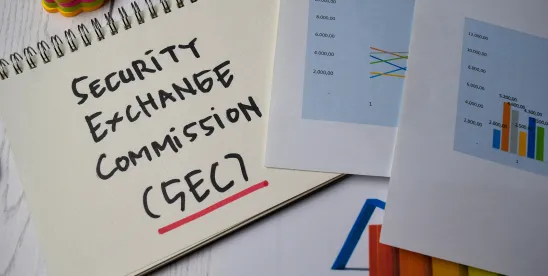In April, the U.S. Securities and Exchange Commission (SEC) awarded $400,000 to a whistleblower after previously denying the whistleblower’s award claim in 2022. The whistleblower appealed this denial before the Court of Appeals for the Fifth Circuit and after obtaining a voluntary remand, the SEC reconsidered its determination. This marks the first time a whistleblower has received an SEC award after appealing a denial before the Court of Appeals.
Case Background
In December 2022, the SEC issued a final order denying the anonymous whistleblower’s award claim on the grounds that they did not meet the definition of a “whistleblower” since the information was submitted by the general counsel of an entity owned by the whistleblower. The SEC argued that the information was submitted on behalf of the entity and not on behalf of the whistleblower in their personal capacity.
According to the award order, the whistleblower (referred to as Claimant 2 in the orders) claimed that “he/she researched and evaluated the information and decided to report his/her conclusions to the SEC” and “that the entity’s general counsel was acting on his/her behalf and at his/her direction when presenting information to the SEC.”
However, the SEC claimed that “there is no evidence that the general counsel or other entity representatives actually represented Claimant 2 in his/her individual capacity rather than the entity on the numerous occasions when they presented information to the SEC.”
Furthermore, the SEC also initially denied the whistleblower on the grounds that they did not comply with the SEC Whistleblower Program’s TCR filing requirements as they did not file a Form TCR within 30 days of disclosing their information to the Commission.
Following the SEC’s 2022 denial, the whistleblower filed a petition for review of their denial in the Court of Appeals for the Fifth Circuit. In response to the whistleblower’s opening brief, the SEC sought and obtained a voluntary remand to reconsider its determination.
The SEC then requested further information from the whistleblower, who, according to the SEC’s new award order, was able to provide “a new declaration from the entity’s general counsel that expressly states that the general counsel represented Claimant 2 in Claimant 2’s personal capacity throughout the process of providing information regarding the Company to the SEC.”
Based upon this new declaration, the SEC determined that the individual did in fact qualify as a whistleblower and had “voluntarily provided original information to the Commission that significantly contributed to the success of the Covered Action.”
Given this new determination, the SEC also decided to use its discretionary authority to waive the TCR filing requirements because the whistleblower “would be otherwise meritorious as he voluntarily provided original information to the Commission that significantly contributed to the success of the Covered Action.”
Implications
This award order is a major milestone in the history of the SEC Whistleblower Program. Since the program was established with the passage of the Dodd-Frank Act in 2010, the SEC has issued hundreds of award orders, awarding nearly $2 billion to qualified whistleblowers and denying hundreds of others. This is the first time, however, that the SEC has awarded a whistleblower after the whistleblower appealed a denial before the Court of Appeals.
Under SEC Rule 21F-13, individuals who are denied an SEC whistleblower award are able to appeal to an appropriate United States Court of Appeals within 30 days of the Commission’s final decision being issued.
This rule is critical to maintaining the integrity of the SEC Whistleblower Program and ensuring that whistleblowers feel that they will not be arbitrarily denied awards without recourse. It is thus a major milestone that a whistleblower was granted an award after filing an appeal under the rule.
This article was authored by Geoff Schweller.



 />i
/>i

